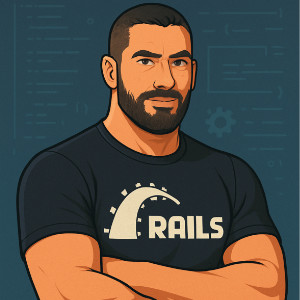Open Source as Your Resume: Why Your Projects Speak Louder than Your CV

When I first started writing the Active Storage Dashboard gem, I wasn’t aiming to change the world. I had a simple problem: managing attachments in Rails apps was tedious, error-prone, and not at all visible. But a small personal itch can spark bigger things. Open source isn’t just about code, it’s about showing who you are, what you value, and how you solve problems. It’s the ultimate resume.
Think about it. A resume just lists skills. It’s you saying “I can do Ruby,” or “I’m familiar with Rails.” But an open-source project says, “Here’s how I build things. Here’s how I think.” It shows your ability to take something from an idea on a napkin all the way to a tool people actually use.
Scratch your own itch
Begin small. Solve an issue that genuinely irritates you. It doesn’t have to be fancy, it have to be useful. Then you share it online. Other developers will eventually start using it, sharing feedback, and contributing code. Whether your project grows large or stays modest, it remains visible proof of your coding style, your clarity, and your creativity.
Open source teaches essential professional skills
Building in the open taught me more than any job ever did. It taught me how to handle feedback; both positive and harsh. It showed me how to clearly document my ideas. It forced me to write better code because anyone could see it. And, crucially, it taught me to ship features that mattered.
Employers (should) love open source because it reduces uncertainty. If they see you’ve created something useful, maintained it, and grown a community, there’s no guessing if you can handle real-world challenges. You’ve already proven it.
But open source isn’t just for job hunting. It’s also about leaving a mark. You will see, eventually, that your project will become more than code. It will become proof that you can turn ideas into reality. That you can work with others. That you can take responsibility for something people relied on.
Open Source means relationships
Moreover, it’s about showing empathy. Every contribution, every issue fixed, every pull request merged isn’t just technical, it’s human. It shows that you understand what others needed, what frustrated them, and how to make things easier for everyone involved.
Creating an open source project also helps you expand your professional network. Collaborating openly online connects you with people you’d never otherwise meet. Developers from different continents, cultures, and industries will offer insights and perspectives. They will improve your thinking, broadened your horizons, and eventually will make you a better developer overall.
Open source teaches humility and collaboration
Managing a project publicly quickly teaches humility. Your way isn’t always best, and you’ll learn to value diverse approaches. You realize that clarity, simplicity, and readability matter immensely. Great code and great documentation are understandable to anyone.
** If you’re still wondering if your side project is worth sharing you should probably read the post again because the answer is obviously YES!**
